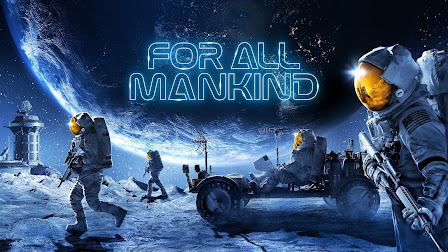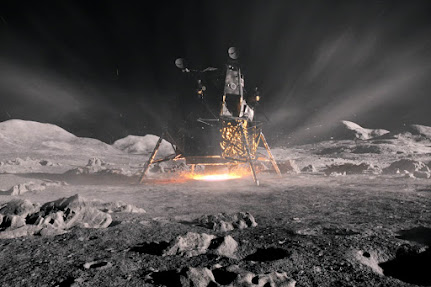2003. Happy Valley has expanded into a full-scale colony on Mars, where technology is being developed to allow humans to capture asteroids and swing them into Mars or Earth orbit to exploit their resources. The United States and Soviet Union are now full-blown allies, marching jointly into the exploration of space. The many workers who lost their livelihoods with the collapse of the oil industry are now finding fresh employment on the Moon and Mars, but the same problems of low pay and class divides follow them. The discovery of a metal-rich asteroid which can solve Earth's shortages in a single swoop spurs a dangerous mission, but political turmoil in Moscow and growing discontent at Happy Valley make the mission anything but straightforward.
For All Mankind's first two seasons staked a claim for the show to be the best slice of science fiction on television at the moment (certainly following the wrapping up of The Expanse). A cool alt-history take on the space race, fantastic visuals and pretty good writing all made for a compelling drama. Season 3 abruptly reversed that course, with hackneyed love triangles and tedious personal drama threatening to undo all the good work achieved in worldbuilding (not the first time this has happened on a Ron Moore-produced show, to be fair).
Season 4 occupies a ground much closer to the former than the latter. Thankfully, it stops and reverses the rot from Season 3. The story is much better, the aggravating love triangle story from Season 3 has been fully exorcised from the show and we're back to the interesting mix of science and alt-reality politics that made the first two seasons compelling. However, the show hasn't fully swung back to that level of quality. There's still some rather far-fetched plotting, and the show's failure to commit to getting rid of its increasingly ancient central character is quite daft.
The season divides its plot between several character arcs. Margo Madison (Wrenn Schmidt) is a reluctant political refugee in the Soviet Union, where her space knowledge is being wasted, until a political realignment brings her to the attention of a new regime. Aleida (Coral Peña), still suffering traumatic after-effects from the bombing of NASA at the end of Season 3, decides on a new career path. Ed Baldwin (Joel Kinnaman), now in his seventies, is comically squatting on Mars and refusing to leave, so NASA has left him in a command position (and, although it's under-explored, possibly studying the impact of low-gravity existence on his ageing body). Newcomer Miles Dale (Toby Kebbell) is a redundant oil worker who gets a new job on Mars, but finds the job isn't all that he thought it might be.
Season 4 balances these storylines well and ties them together nicely at the end of the season, creating a much more cohesive storyline than the spotty third season. This is no mean feat with multiple groups of characters active in the United States, Soviet Union, on Mars and on various spacecraft. The interaction of the storylines is pretty good.
However, the show continues to mix cool realism (the long travel times to Mars and the inability to engage in real-time conversation with Earth) with decidedly bonkers speculative elements (gigantic giga-engines that can steer asteroids). This mix was odd in Season 2 but has become de rigour for the show by this point, and does give us some cool visuals and awesome vfx sequences, so fair enough.
Anyone who's read Kim Stanley Robinson's Mars Trilogy can probably see some of the plot twists coming a mile off, with musings on capitalism-in-spaaaace and how it leads to the predictable repeating of patterns we see on Earth. So the Happy Valley colony quickly becomes a stratified society between the above-deckers and the maintenance workers belowdecks, complete with a black market and secret bars. We're not quite at the point of full independence (I suspect that will rear its head several seasons down the line) but this is a clear transitional story. It's not that original, to be honest, but Kebbell's solid performance as Miles Dale and fellow newcomer Tyner Rushing's great turn as Samantha Massey both help sell it.
On the negative side, the lengths the show goes to in order to keep previous main characters in the frame remains quite implausible. Ed should have been retired at least one season ago, and Kelly has relatively little to do. At least Margo gets a meaty storyline with some intriguing twists. And I'll forgive a lot of these problems for keeping Danny out of the picture this season. On another flipside, the absence of former-President Ellen feels jarringly abrupt, but I suppose her story purpose has been fulfilled.
Season 4 of For All Mankind (****) splendidly improves on the tedious third season and brings us back much closer to the quality of the first two. We're still not back to the show at its best, but this season is a big improvement over last year and opens the story up for a very interesting fifth season.



